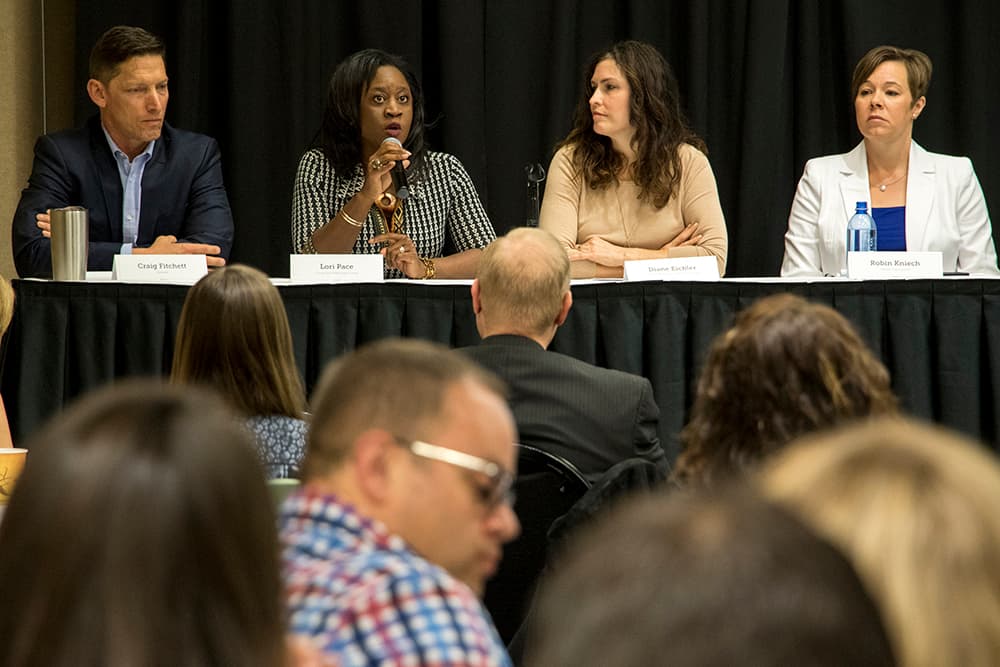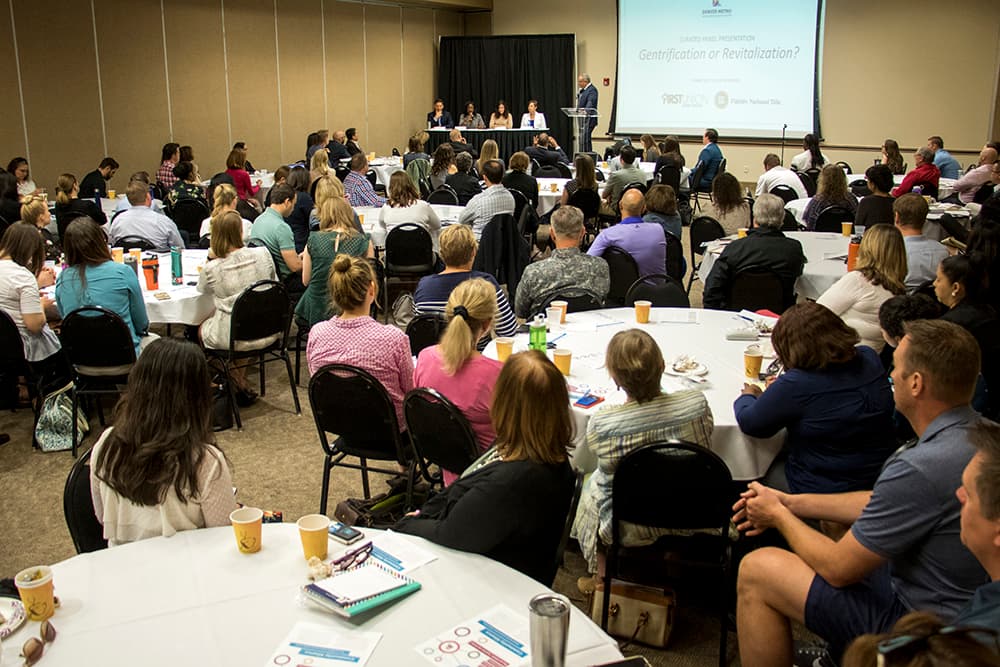
Dozens of Realtors and people interested in real estate-related change in Denver gathered at the PPA Event Center in Jefferson Park to talk about the difference between revitalization and gentrification — and why changes in Denver’s neighborhoods can be perceived as disruptive instead of beneficial.
In describing some of the recent changes in the city, speakers did some backtracking and added context about the sudden explosion of investment in these gentrifying areas.
“We are only talking about revitalization because there has been an abandonment that preceded it," Denver City Councilwoman At-large Robin Kniech said. "Government and typically the private market stopped investing in an area. We stopped investing in it in many cases because we didn't value who was living there the same as we did other parts of our city."
Kniech said she thinks these marginalized communities deserve and need investment, but that she doesn’t believe that investment has to come at the cost of their staying in the area.
"I think that revitalization becomes gentrification when it has displacement," she said. "If you revitalize and the benefits go to to the people that are living there, and they’re allowed to stay in their community then you’ve avoided the displacement that comes with gentrification."

She said that can be achieved through effective city policies and financial tools like a TIF — a tax increment system that allows the city to take out a bond on a blighted area and have that bond paid off by the future tax money accrued by that area after development.
Kniech also mentioned the city's recent work with the temporary rental and utility assistance program, as well as providing funding for eviction defense attorneys, as examples of the city using its tools to stop gentrification.
Craig Fitchett, director of acquisitions and development at Delwest, said he believes that there has to be an increase on the supply side of housing to stop the effects of gentrification. He added that people must be given the opportunity and tools to eventually purchase the homes they live in, arguing that although affordable housing offers people a place to live, they can't gain equity as quickly as they would in market-rate housing.
"I'd like to see affordable, with some semblance of attainable ownership, affordable rentals, attainable ownership and market rate rentals all in the same community," Fitchett said. "I’d like to give people a pathway out of the affordable world into the market-rate world."

The event, which cost $25 for attendance, attracted a different crowd than many of the gentrification summits that have taken place in the city over the last year and a half. Unlike meetings that were filled with people being affected by gentrification, this meeting was far more focused on those who have the power to influence and manipulate the market.
Panelists and audience members agreed that gentrification is a challenge worth addressing — but also that it will require creative approaches to invest in communities that don't involve displacement. Panelists pointed to the need for developers and Realtors to think outside of their immediate projects and consider how these things fit in with the nature of a neighborhood.
Lori Pace, broker associate at PorchLight Real Estate Group, emphasized the importance of education in helping Denver handle such rapid change — education not only of millennials and younger generations, but also of older generations.
“The only way you can stop gentrification is to own," she said, "and the only way you can teach your parents is for you to be the example and to own and to continue to stay in the property and figure out how to make money from that property to stay there.”
Pete Casillas, president and publisher of the Denver Business Journal, moderated the panel, which also included Diane Eichler, president and founder of Decibel Blue & Decibel Green Creative Marketing.












